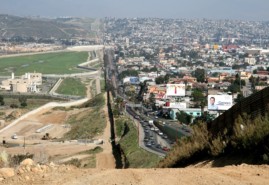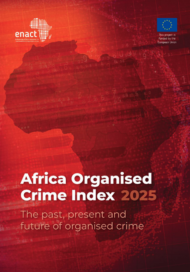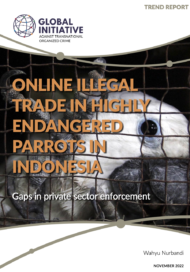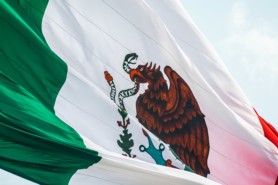Posted on 30 Sep 2016
Recent U.N. summits largely ignored the $157bn industry behind mass migration, warns author Tuesday Reitano. When they did pay attention, they failed to learn the lessons of Niger and Egypt.
The New York Declaration which was the centerpiece of a much-vaunted U.N. summit on refugees paid scant attention to one of the most potent vectors in large-scale irregular migration: the role of smugglers.
Human smuggling is now estimated to be one of the largest global illicit markets, with a value of some $157 billion annually. In Europe’s migration crisis, for example, EUROPOL estimates that upwards of 90 percent of the people who arrived in Europe in 2015 used a smuggler, paying them an average of between $3,000 and $6,000 for their journey. Smugglers’ practices of overloading boats and using unseaworthy vessels are largely accountable for the nearly 10,000 people who have died in the central Mediterranean in the last three years.
The only acknowledgment and response made by the New York Declaration was to encourage the ratification of the U.N. Transnational Organized Crime Convention (UNTOC) and its dedicated protocol on smuggling of migrants.
This is a meaningless response that lacks a fundamental understanding of the smuggling industry and the dynamics of the countries involved in the crisis. At best it is a red herring, at worst criminalization of smuggling may inflame rather than reduce the damaging impact of human smuggling and will do little to practically reduce the global flow of people. Passing laws allows states to appear cooperative, while masking their unwillingness or inability to tackle the problem.
In May 2015, Niger was the first West African state to enact a national law criminalizing migrant smuggling, a move that was much heralded by the U.N. and the international community. But Niger’s northern city of Agadez remains a significant thoroughfare – if not the principal gateway – for sub-Saharan Africans to Libya and the coast, with numbers passing through continuing to rise rather than fall. Signing a law and enacting it are two very different things.
To implement the law, the government shortly thereafter requested 1 billion euros ($1.1 billion) in funding. Even in the unlikely event that this level of international support is realized, it is fundamentally not in the interests of Niger to take any substantive action.
Niger is one of the world’s poorest and most fragile countries – it is ranked bottom of the U.N.’s Human Development Index, 188 out of 188 – with chronic overpopulation, challenges of food insecurity and a growing tide of religious fundamentalism. The thousands of migrants paying smugglers hundreds of dollars every week itself brings a dynamic cash injection into the impoverished communities of the north, and this money flows across the community to smugglers, but also to local business community members as well as the police and local security officials. To cut this income without providing alternatives would risk igniting dormant separatist movements and sectarian conflict of the kind that plagues neighboring Mali.
In November, Egypt became the next country to sign in a new law criminalizing the smuggling of migrants, putting in place severe penalties for the crime, potentially including life imprisonment. Despite the recent rhetoric, the last three years have offered little evidence of genuine intent to address human smuggling on the part of the authorities. Instead, our research suggests that the smuggling industry in Egypt is enabled in part by corruption. We observed that authorities tend to catch one boat on the same night that several others leave, suggesting that smugglers are willing to sacrifice one boat to the authorities to ensure that the others successfully reach international waters.
The smuggler gets to pocket the money, and the security forces get to claim success in the phony war against smuggling networks. Based on precedents set over the last five years, experts and human rights activists fear that this new law is more likely to criminalize migrants themselves than the smugglers. Thus far, Egypt has arrested and detained many thousands of migrants, and but has never yet prosecuted a single smuggler. Furthermore, this law serves well to deflect international attention from Egypt’s own role in pushing people to sea, not only from the neglected refugee community but also its own citizens, as the authoritarian government increasingly adopted a militarized response to the nation’s political struggle.
One of the fundamental misinterpretations of the human smuggling industry is that it is inherently exploitative, violent and criminal. In fact, longstanding evidence from across the globe suggests that smuggling is a service industry predicated on high levels of trust and with safety mechanisms built in to protect the migrants on their journeys.
The criminal justice approach that the New York Declaration suggests, coupled only with border control strategies, is not going to stop the global migration crisis. It will exacerbate the worst tendencies of the smuggling market, enriching it, attracting more criminal actors, commoditizing migrants and making them more vulnerable. The polar opposite of the fundamental human rights and international norms and standards the U.N. system is meant to support.
To have credible impact, the goal should be to explore means to reduce the demand for smugglers and to deflate, rather than heighten, the levels of profit to be gained in moving people irregularly. This requires a radical rethink and some innovation around how migrants and refugees are treated, how and where they are encouraged to travel to and who moves them.
Celebrating the signing of another law may look like action but, especially with no credible means to implement them or monitor their impact, it is an isolated and short-sighted move.
This article was originally published by Refugees Deeply on 30 September 2016. The views expressed in this article belong to the author and do not necessarily reflect those of Refugees Deeply.
Read this excerpt from Migrant, Refugee, Smuggler, Saviour’ The Criminal Heroes Offering New Lives in Europe.



